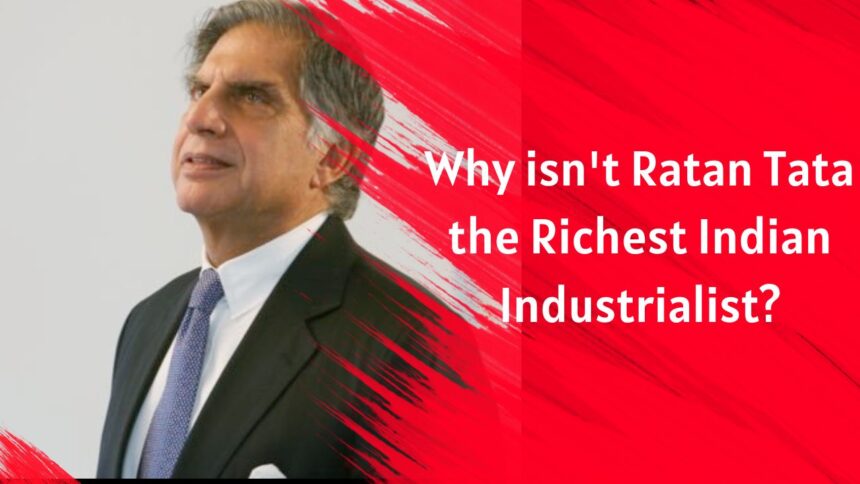Ratan Tata, a prominent figure in the Indian business world, is widely respected for his contributions to the industrial sector. Despite his significant achievements and success, he is not the wealthiest industrialist in India. This blog post will explore into the reasons behind Ratan Tata’s position in the wealth rankings and explore the factors that contribute to the fortunes of other leading industrialists in the country.
The Philosophy of Ratan Tata
Business Ethics and Practices
On the forefront of Ratan Tata’s philosophy is his unwavering commitment to business ethics and practices. Throughout his career, Tata has emphasized the importance of conducting business with honesty, integrity, and transparency. He believes that ethical conduct not only fosters trust among stakeholders but also leads to long-term success and sustainability.
Focus on Social Welfare
Practices show that Ratan Tata’s philosophy extends beyond profit-making to have a tangible impact on society. His commitment to social welfare is exemplified through various philanthropic initiatives undertaken by the Tata Group under his leadership. From promoting education and healthcare to supporting rural development and environmental conservation, Ratan Tata believes in using his resources for the greater good.
This dedication to social welfare has not only earned Ratan Tata respect and admiration but has also set a benchmark for corporate social responsibility in India and beyond. Through his actions, Tata has shown that businesses can thrive while also making a positive impact on the world around them.
Business Strategies and Growth
Conglomerate Diversification
On the path to becoming one of India’s most prominent industrialists, Ratan Tata employed a strategy of conglomerate diversification. By expanding Tata Group’s portfolio across various industries such as steel, automotive, telecommunications, and hospitality, he mitigated risks associated with dependency on a single sector. This allowed the conglomerate to thrive in different economic climates and capitalize on emerging opportunities.
Innovation and Adaptability
Any successful business leader understands the importance of innovation and adaptability in a rapidly evolving market. Ratan Tata’s emphasis on innovation and his ability to adapt to changing consumer preferences and technological advancements set him apart in the competitive business landscape. By fostering a culture of continuous improvement and investing in research and development, Tata Group was able to stay ahead of the curve and maintain its position as a market leader.
A relentless pursuit of innovation enabled Tata Group to launch groundbreaking products and services that resonated with consumers and set new industry standards. By adapting to changing market dynamics and embracing emerging technologies, Ratan Tata ensured that the conglomerate remained at the forefront of innovation and stayed resilient in the face of challenges.
Wealth Accumulation and Distribution
Ratan Tata’s Approach to Wealth
Some industrialists have focused on accumulating wealth through aggressive expansion, mergers, and acquisitions. Ratan Tata, on the other hand, has maintained a conservative approach to wealth accumulation. With his emphasis on long-term sustainable growth and ethical business practices, Tata has chosen to prioritize the welfare of employees, communities, and society as a whole over maximizing profits.
Comparison with Other Industrialists
An analysis of Ratan Tata’s wealth compared to other industrialists reveals interesting insights. Here is a comparison between Ratan Tata and other notable Indian industrialists:
| Ratan Tata | Other Industrialists |
While some industrialists may have amassed greater fortunes through aggressive strategies, Ratan Tata’s focus on sustainable growth and social responsibility has set him apart in the business world. His approach to wealth accumulation demonstrates a unique blend of financial success and ethical leadership.
Wealth Accumulation Comparison
When comparing the wealth accumulation of Ratan Tata with other industrialists, it is important to consider not only the monetary value but also the impact and legacy created by their business practices. Here is a breakdown of the comparison between Ratan Tata and other industrialists:
Ratan Tata’s Legacy and Impact
Contributions to Indian Industry
Indian industrialist Ratan Tata has left an indelible mark on the landscape of Indian industry through his transformative leadership and strategic vision. During his tenure as the chairman of the Tata Group, he oversaw the growth and global expansion of the conglomerate, positioning it as one of the most influential and successful businesses in the country.
Influence on Future Generations
Indian industrialist Ratan Tata’s influence on future generations of entrepreneurs and business leaders is significant. His emphasis on integrity, social responsibility, and innovation has inspired a new wave of Indian entrepreneurs to strive for excellence while also giving back to society. Ratan Tata’s legacy continues to serve as a guiding light for the next generation of business leaders in India.
Ratan Tata’s selfless dedication to philanthropy and his commitment to making a positive impact on society have set a high bar for future leaders to aspire to. His exemplary leadership style, marked by humility and a strong ethical compass, resonates with young Indian entrepreneurs who seek to build successful businesses with a conscience.
To wrap up
Presently, Ratan Tata is not the richest Indian industrialist because the majority of his wealth is not held in his personal capacity but through various charitable trusts and Tata Sons, the holding company of the Tata Group. Despite not being the wealthiest, Ratan Tata is widely respected for his leadership, ethical business practices, and philanthropy. His focus has always been on creating a sustainable and socially responsible business empire that benefits society as a whole. While wealth is an important measure of success, Ratan Tata’s legacy goes far beyond his personal net worth, making him a revered figure in the business world and beyond.
FAQ
Q: Why isn’t Ratan Tata the Richest Indian Industrialist?
A: While Ratan Tata is a highly successful and respected industrialist in India, he is not the richest due to various factors such as the diversified nature of his business interests and philanthropic activities.
Q: Who is currently the Richest Indian Industrialist?
A: As of now, Mukesh Ambani, the chairman of Reliance Industries, holds the title of the richest Indian industrialist due to his significant investments in various sectors.
Q: What are the key reasons behind Ratan Tata’s success?
A: Ratan Tata’s success can be attributed to his visionary leadership, strategic decision-making, focus on innovation, and the ethical values he upholds in business practices.
Q: Does Ratan Tata’s philanthropic work impact his wealth status?
A: Yes, Ratan Tata’s extensive philanthropic initiatives and contributions towards societal development often involve significant financial commitments, which may impact his personal wealth compared to other industrialists solely focused on business growth.
Q: How does the diversified nature of Ratan Tata’s business empire affect his wealth ranking?
A: Ratan Tata’s business empire, which spans across multiple industries such as automotive, steel, telecommunications, and hospitality, may result in wealth distribution across various sectors rather than concentrated in a single industry, impacting his position in the wealth ranking.









